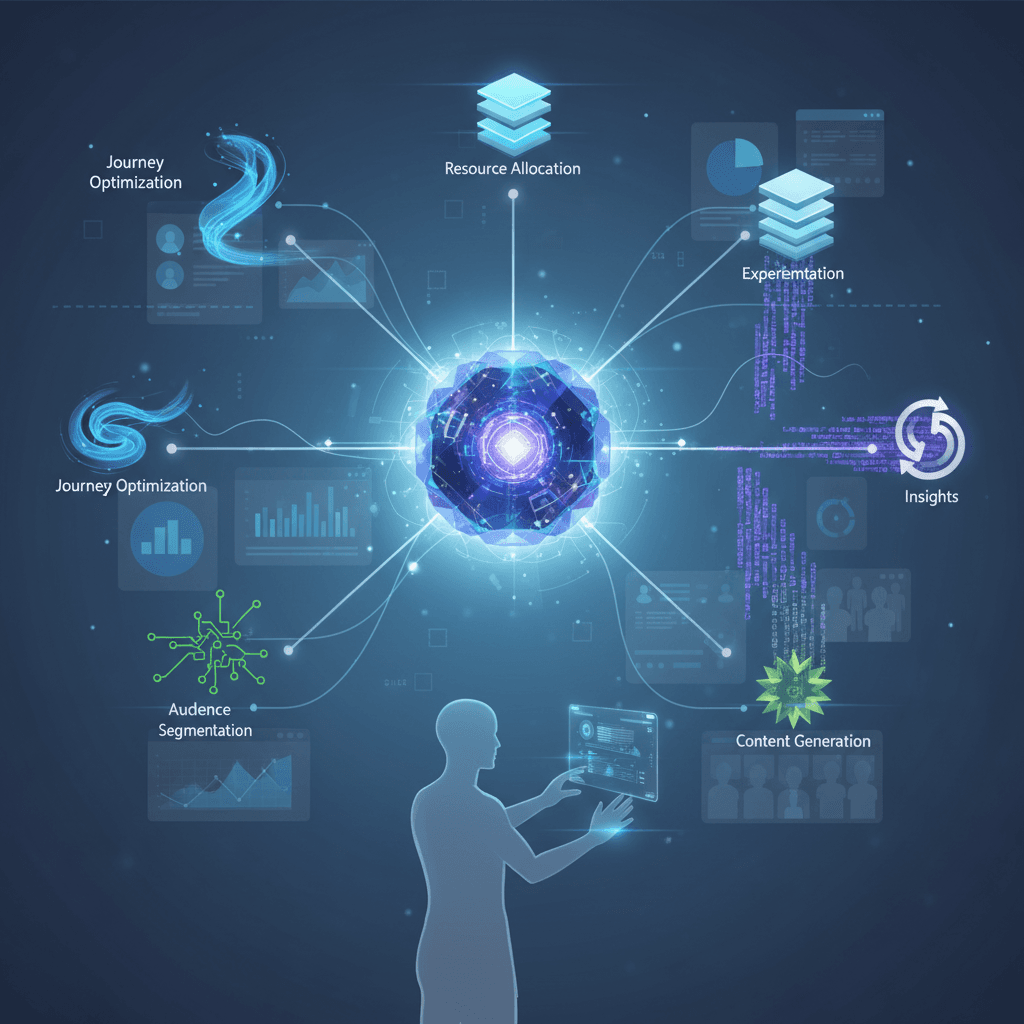Adobe launches agentic AI agents to automate enterprise customer experiences.
Adobe's agentic AI suite autonomously manages enterprise marketing and CX, promising unprecedented personalization, productivity, and strategic focus.
September 12, 2025

Adobe has moved decisively into the era of agentic artificial intelligence, rolling out a suite of AI agents designed to automate and redefine how large businesses manage marketing and orchestrate customer experiences. The new offerings, now generally available, are powered by the Adobe Experience Platform (AEP) and aim to tackle complex processes that have traditionally required significant manual effort, from audience segmentation to optimizing digital campaigns.[1][2][3] This launch signals a significant strategic push to embed autonomous AI directly into the core workflows of marketing and customer experience teams, promising to unlock new levels of productivity and personalization at scale.[4] The move is positioned as essential for brands struggling to keep up with the demand for dynamic and individualized customer interactions.[5]
At the heart of the announcement is a set of six specialized, out-of-the-box AI agents, each integrated within Adobe's enterprise applications like Real-Time Customer Data Platform, Adobe Experience Manager, and Adobe Journey Optimizer.[2][5] The Audience Agent is designed to build, scale, and optimize high-value customer segments for personalization initiatives.[2] The Journey Agent simplifies the creation and management of customer campaigns across various channels such as web, mobile, and email, optimizing touchpoints based on customer behavior.[1][2] An Experimentation Agent helps teams hypothesize new ideas for optimization, analyze the impact of tests, and generate AI-driven insights to predict conversion lift.[1][5] The Data Insights Agent streamlines the process of deriving insights from complex organizational data, enabling teams to visualize and forecast the impact of customer experience initiatives.[2] For maintaining website health, a Site Optimization Agent continuously monitors for issues like broken links or underperforming pages to boost performance and engagement.[2] Finally, a Product Support Agent enhances the resolution process for Adobe customers by leveraging knowledge sources to streamline troubleshooting, including case creation and tracking directly within user workflows.[2]
Underpinning this new AI workforce is the Adobe Experience Platform (AEP) Agent Orchestrator, a critical component that manages and coordinates the actions of both Adobe's native agents and those from third-party ecosystems.[2][5] This orchestration layer is powered by a reasoning engine that combines decision science with advanced language models, allowing the agents to understand context, plan multi-step actions, and refine their responses.[1][4] AEP serves as the foundation, providing a deep understanding of enterprise data, content, and workflows, which ensures the agents' actions are contextually relevant and grounded in a company's real-time customer data.[2][3] This integration is crucial, as it allows the agents to move beyond simple automation to perform tasks autonomously on behalf of users with minimal supervision.[1][5] Adobe also emphasized a "human-in-the-loop" capability to allow for ongoing refinement and oversight of these automated workflows.[4] The system is accessed through Adobe's AI Assistant, a conversational interface that over 70% of eligible AEP customers are already using to interact with the platform.[2][4]
The strategic implications of this launch extend beyond mere feature enhancements, representing Adobe's vision for the future of enterprise marketing in an AI-driven world. By embedding agentic AI into existing workflows, Adobe aims to augment marketing teams, not replace them, freeing up human workers from tedious tasks to focus on higher-level strategy.[5][4] The company argues that as customer experiences become increasingly dynamic, humans alone cannot keep pace with the demand for personalization, making AI agents an essential tool.[5] Early adoption by major brands including The Hershey Company, Lenovo, Wegmans Food Markets, and IBM lends weight to this vision.[2][6] IBM, for instance, reported that using Adobe's AI tools in a previous campaign cut content costs by 80% and reduced ideation time from weeks to just two days.[6] The move also positions Adobe more competitively against rivals like Salesforce in the customer relationship management and digital marketing space.[5] Looking ahead, Adobe plans to further empower businesses by releasing an Experience Platform Agent Composer and an Agent SDK, which will allow developers to build, customize, and extend their own AI agents to fit specific organizational needs.[4]
In conclusion, Adobe's introduction of a generally available suite of AI agents marks a significant step toward the automation of complex customer experience management. By providing a set of specialized agents governed by a sophisticated orchestration engine and grounded in the rich data of the Adobe Experience Platform, the company is offering enterprises powerful new tools to scale personalization and enhance productivity. The initial focus is on automating core marketing tasks like audience creation, journey optimization, and data analysis, with early results from major brands suggesting tangible benefits in speed and cost savings. This embrace of agentic AI represents a clear trajectory for the industry, where intelligent, autonomous systems work alongside human teams to navigate the increasingly complex landscape of digital customer engagement.